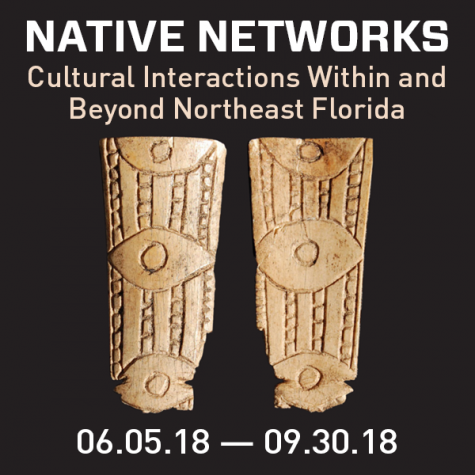
*Correction 7/10 10:45 a.m.: An original publication of this article stated the findings are from the “Malcove Complex.” This is an incorrect spelling. The correct title is Mill Cove Complex.
UNF Professor Keith Ashley, with help from students of the Sociology and Anthropology Department, has been working to educate the local public on the lives of early Native Americans and colonists of the Jacksonville area. Together, they have put together an exhibit of Native American artifacts at the Jacksonville Museum of Science and History.
Much of the knowledge regarding the original Native American populations is unknown, and Ashley’s efforts are aimed at uncovering this history. The discovered artifacts are important links that tie the locals to the larger Northeastern United States trade routes.
“It’s part of a Will Cummer Student Internship. Students were challenged with coming up with the exhibits that reflected some of the new trends and thoughts in archaeology of the Jacksonville area, and to tout some of the UNF work that has been done,” Ashley said. “They worked on this really hard for the past four to five months. They had two smaller exhibits that went on at the downtown Jacksonville Library for a couple weeks, and they had a small one at the UNF Library for a couple weeks as well.”
The Native Networks findings are from the Mill Cove Complex excavation site that is one of the centerpieces of the UNF Archaeological Lab. The MOSH exhibit includes section labels on the history of Florida Natives, the Ocmulgee Connections, Mississippian Interactions, and Northeast Florida Archaeology. There are two five-shelved display cases with artifacts such as cups, pottery, bone and shell tools, scrapers and much more.
“The students determined artifact layouts and mounts within the cases, and they delivered the artifacts several days before installation so that their conditions could be recorded. On installation day, one of the students arrived with text panels, cases, mounts and supplies and assisted our staff with the installation of the show,” Paul Bourcier, Curator for the MOSH, said.
All UNF students are welcome to volunteer at the Archaeological Lab without having to major in archaeology. The exhibit opened at the MOSH on June 5, 2018, and is scheduled to run until Sept. 30, 2018.
—
For more information or news tips, or if you see an error in this story or have any compliments or concerns, contact editor@unfspinnaker.com.











